Most Popular
Subway Stories
[Subway Stories] Apgujeong is making a comeback
Seoul’s own Beverly Hills had once lost its luster, then the pandemic brought luxury back
By Park Han-naPublished : March 3, 2022 - 10:30
The following is part of Seoul Subway Stories, a newly launched Korea Herald series exploring the subway stations and surrounding areas across the city. – Ed.


For the past 40 years, Apgujeong, the Beverly Hills of Seoul, has seen the rise and fall of its commercial corridors that have been leading trends in high fashion, fine dining and even plastic surgery in the country.
Changes in consumer behavior caused by the prolonged COVID-19 pandemic is giving fresh impetus to the district, which enjoyed its status as the unrivaled hub of fashion and trends from the early 1990s to mid-2000s until shopping moved online.
As the pandemic gloom sparks a craving for luxury goods in what many experts describe as “revenge consumption,” the commercial district near Apgujeong Station on Subway Line No. 3 is making a comeback as a mecca of luxury in South Korea.
Last year, the area recorded the country’s highest daily sales average of 13.6 billion won ($11.3 million), according to an analysis by Geovision, a big data platform backed by SK Telecom.
“Luxury stores, high-end restaurants, beauty stores and hospitals are concentrated in the commercial district around Apgujeong Station. It has become a beneficiary area of the phenomenon of advanced domestic consumption due to the coronavirus,” the Geovision research team said.
It was the first time that the area came in first place in nearly 10 years since 2012 when the telecom firm began to collect and release the data.
Real estate agents in the area also feel that rejuvenation is underway.
“We are running out of real estate inventories to meet demand for new restaurants,” said a realtor at Hansung Real Estate Agency located on Apgujeong Rodeo Street.
Because of the recent emerging demand, tenants are now required to pay a premium -- amounting to some 200 million won or more -- to landlords, said the realtor who declined to be named.
This is in stark contrast to the mass exodus of shops, especially fashion brands, from the street several years earlier, due to huge store operating costs and explosive growth of online shopping.
Banking on the symbolism that Apgujeong holds as a high-end fashion mecca, online-based luxury goods platforms like Must It and fashion shopping site Musinsa have opened their offline stores in the area.

“Apgujeong is the area that pops up in everyone’s mind when they think of luxury brand items,” said Park Ju-won, a brand marketing manager at Must It.
“We tried to maximize the strengths of Must It’s online platform by opening a store that pushes the boundary of traditional distribution channels,” she said, adding that the offline store offers a one-stop service to customers with a wide range of products from various brands.
To be correct, the commercial area widely referred to as Apgujeong is spread out across multiple subway stations, including Apgujeong on Line No. 3, Cheongdam on Line No. 7 and Apgujeong Rodeo on the relatively new Suin-Bundang line.
Unlike other shopping districts which were typically formed within walking distance of subway stations, Apgujeong’s commercial corridors are split into three distinct clusters where most people get around by car.
Small retail shops and plastic surgery hospitals are gathered around Apgujeong Station. The area nearby Apgujeong Rodeo Station is lined with famous restaurants and coffee shops. Cheongdam-dong luxury fashion street is lined with flagship stores of prestigious fashion brands such as Saint Laurent, Dolce & Gabbana, Louis Vuitton, Fendi, Gucci and Prada.


The links between Apgujeong and luxury fashion dates back to the 1980s.
Apgujeong Station commenced operation in 1985 on the heels of the rapid property development in Apgujeong-dong and Cheongdam-dong, now the richest neighborhoods in Gangnam-gu.
In search for new wealthy customers, fashion designers flocked to the district to open their boutiques, leaving the former mecca of fashion Myeong-dong.
Apgujeong’s distinct identity was formed in the early 1990s as a birth place of the youth cultural phenomenon known as the “orange tribe,” named after the color of the subway line that leads to the district.
The orange tribe refers to 20-somethings who enjoyed an extravagant lifestyle and studied abroad thanks to their affluent parents.
Flaunting their posh foreign cars and high-end fashion labels, the group, and the area, came as a culture shock for many of the older generation who were taught that frugality is a virtue.
Lee Eun-doe, 49, remembers Apgujeong Station as a meeting spot with her friends before heading to a cafe in Apgujeong Rodeo Street for a cup of coffee that cost over 10,000 won, more than double the average price in 2021.
“Price didn’t matter much. That was the hippest place ever back in the 90s,” she said.












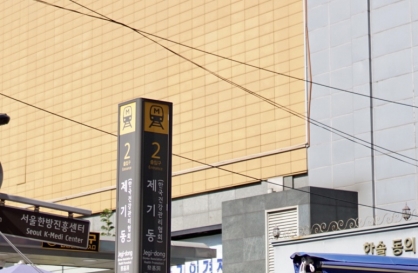
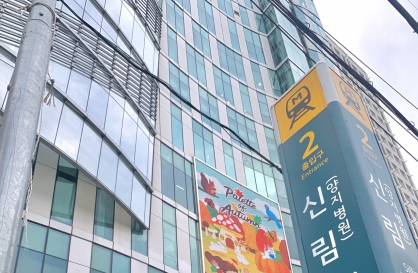
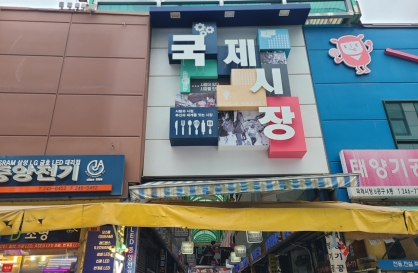
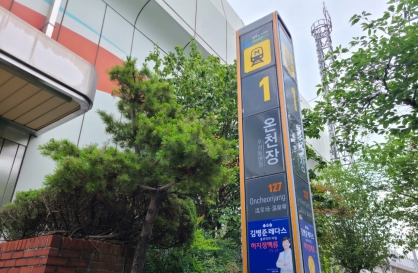
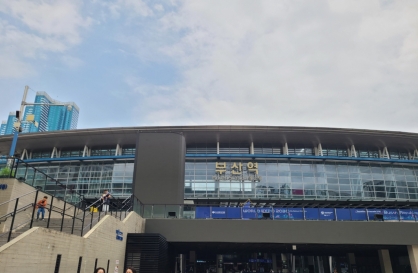







![[Today’s K-pop] BTS’ Jimin logs 1.2b streams on Spotify in record time](http://res.heraldm.com/phpwas/restmb_idxmake.php?idx=642&simg=/content/image/2024/12/18/20241218050071_0.jpg&u=)